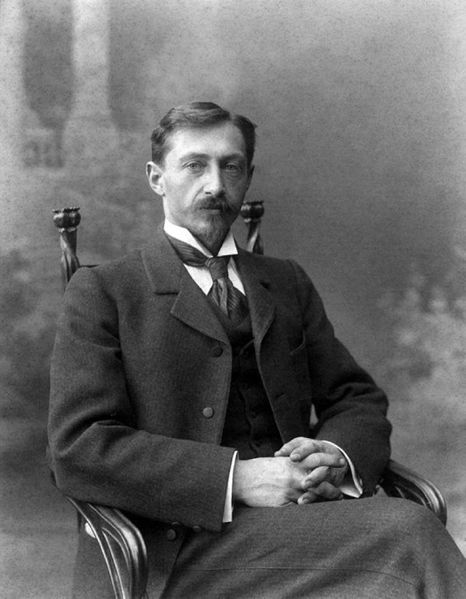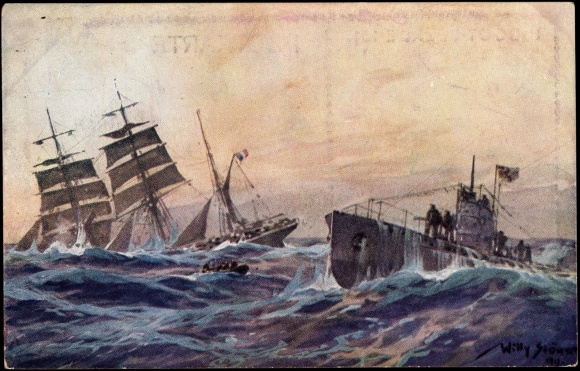At the beginning of this film a swan paddles his way around this river, and then promptly morphs into a deceased princess. We only learn she is a princess after numerous angles on her floating cadaver have been explored, but none that reveals her face or, apart from a petticoat, her probable gender. The first face we do see is that of Joe Hardy (Ewan McGregor), a shipyard worker who combs the body onto the wharf with the help of his colleague Les (Peter Mullan). Joe covers her fundament with her slip then palms her back so gently that it is clear he knows the identity of this unfortunate and, more than likely, how she achieved her sorry state. He descends the stairs to eat with Les's unhappy family, whose wife Ella (Tilda Swinton) lies about the eggs she bought but didn't share. Then he is aboveground again, smoking, watching the stretcher suddenly uncover a dangling leg and revealing something that he shouldn't have revealed. Ella sees it as well and she is horrified.
 From this initial sequence three distinct characters arise: Joe is attractive, libidinous, and intelligent in that mild, college-educated manner that suggests he can talk about most things and not sound like an utter fool; Les, in no small coincidence, is none of the above; and Ella has not been loved in a very long time for anything she might be able to offer humanity – her face is always taut, her voice always on the brink of cracking, her eyes bulging in fear that the world which confronts her every morning will never get any better. It is Ella who owns the Atlantic Eve, the scow on which the three receive coal shipments; it is also Ella who has "spent her whole life on barges" and knows what they can do to a human soul. Les has no ostensible hobbies apart from darts ("I never lose," he insists) at the local pub, and has few lessons with which to instruct his prepubescent son Jim. But Joe has a much brighter future ahead of him, if only because he is in no way bound to the barge. When he confesses during one miserable mealtime that he plays darts, Ella seems disappointed: "I thought you did better things with your time." At that same dinner, Joe gives Ella a look he will impart throughout the film to many women. Soon thereafter they lurch out to a corner of the towpath and Joe takes what he needs and gives nothing in return. That is why his subsequent seduction of Cathie (Emily Mortimer) should not surprise us in the least. The scenes with Cathie are interpolated without subtlety or pretension, and we soon discover far too much about her relationship with Joe Taylor, a man who strikingly resembles our charming stevedore. Joe Taylor, however, has other plans for his young life. He is writing a novel that could very well be patterned on Young Adam, and his vocalized intention is to travel to the alien planet of China for reasons that, while obvious, are never clarified. Now there is a type of man who will say anything to make a girl discard her clothes and inhibitions, and there is another type who will do anything, however dangerous, foolhardy, or radical with precisely the same end in mind. Yet Joe belongs squarely to a third grouping. This subspecies is convinced that women, like rainwater and poetry, must be hoarded. One can never get enough of them; and the more one has, the more one understands why people do and say what they have always done and said, mechanically and instinctively.
From this initial sequence three distinct characters arise: Joe is attractive, libidinous, and intelligent in that mild, college-educated manner that suggests he can talk about most things and not sound like an utter fool; Les, in no small coincidence, is none of the above; and Ella has not been loved in a very long time for anything she might be able to offer humanity – her face is always taut, her voice always on the brink of cracking, her eyes bulging in fear that the world which confronts her every morning will never get any better. It is Ella who owns the Atlantic Eve, the scow on which the three receive coal shipments; it is also Ella who has "spent her whole life on barges" and knows what they can do to a human soul. Les has no ostensible hobbies apart from darts ("I never lose," he insists) at the local pub, and has few lessons with which to instruct his prepubescent son Jim. But Joe has a much brighter future ahead of him, if only because he is in no way bound to the barge. When he confesses during one miserable mealtime that he plays darts, Ella seems disappointed: "I thought you did better things with your time." At that same dinner, Joe gives Ella a look he will impart throughout the film to many women. Soon thereafter they lurch out to a corner of the towpath and Joe takes what he needs and gives nothing in return. That is why his subsequent seduction of Cathie (Emily Mortimer) should not surprise us in the least. The scenes with Cathie are interpolated without subtlety or pretension, and we soon discover far too much about her relationship with Joe Taylor, a man who strikingly resembles our charming stevedore. Joe Taylor, however, has other plans for his young life. He is writing a novel that could very well be patterned on Young Adam, and his vocalized intention is to travel to the alien planet of China for reasons that, while obvious, are never clarified. Now there is a type of man who will say anything to make a girl discard her clothes and inhibitions, and there is another type who will do anything, however dangerous, foolhardy, or radical with precisely the same end in mind. Yet Joe belongs squarely to a third grouping. This subspecies is convinced that women, like rainwater and poetry, must be hoarded. One can never get enough of them; and the more one has, the more one understands why people do and say what they have always done and said, mechanically and instinctively.
Indeed, for generations philandering artists have justified their inability or unwillingness to love only one woman through some ridiculous notion that the more of the world's womanhood one samples, the more one is prepared, if not entitled, to describe it (perhaps Joe consciously subscribes to this theory, although it is far more likely than he doesn't ponder strategies to that extent). When he first possesses Ella, they refrain from discussing what she saw that morning on the pier as if she always knew he was complicit in the act. But once they regain the houseboat she proposes to make him the egg that he never received, and she becomes more and more amenable to opportunistic copulation, even going so far as to fulfill his unexpressed wishes. When Ella asks Joe how long it would take to divorce Les, Joe responds that he knows "nothing about such things" – and how could he since he has no interest in commitment much less its dissolution. At precisely the film's midpoint, we behold Joe near Ella's breast fitted with a fly rubbing its front limbs together, a gesture which reminds us of the man observing that breast. Joe comments that they have loved too long and Les will shortly be upon them, which they both agree would be unpleasant. Yet they slip back into caresses and moans and the next thing they know they are roused by heavy and invisible footfall on the scow's deck, the reverse of an earlier scene when Joe walks silently on the side of the tunnel as the barge passes through. Why do they not care whether Les knows? Because, as is so often the rationale in extramarital excursions, any smart spouse would have known all along. Moreover, that spouse's longstanding ignorance testifies to his lack of interest in the cheating party, which now unfortunately sounds much like a defense attorney's opening argument.
That the world in which this little tragedy takes place is fallen should not be doubted; the only question is whether the examination in Young Adam, at times hedonistic and self-absorbed, is worth our attention. A few facts do elevate the banal: Les's obsession with being mentioned in the paper; Joe's obsession with being the other man, if only for a few minutes here and there; the sudden appearance of Ella's slutty, gin-guzzling sister Gwen, a newly minted widow who utters the best line in the film ("Drink. We've got things to do"); and the very first words Cathie confesses to Joe on a placid and otherwise harmless beach. The love triangle, or trapezoid, or pentagon (Joe appears to enjoy recalculating the odds at every interval) leads to the eventual arrest of a plumber by the name of Daniel Gordon. Cathie had mentioned Gordon earlier as her boyfriend of sorts, although he was married and, by her own admission, she did not love him. Only later, in a copy of a ubiquitous Glasgow newspaper which gets tossed into the water, do we first see Gordon's face beneath a horrific headline, the same water in which both a swan and a dead princess had swum. Then, in the film's best scene, Les hands over the wheel to Joe who enters the tunnel and instantaneously becomes a shadow as if Gordon's pending trial made him once again a non-entity. But what is fascinating in a gray and sensual world like the version of 1960 Scotland depicted is how sin gets punished in a multitude of ways. Gordon is an adulterer and he may hang; Ella is an adulteress who ends up with a son, a barge, and perhaps, it is suggested, Les's forgiveness, if that's worth anything at all; Cathie is promiscuous and desperate for life to sweep her off her dainty feet, yet she should know better than dealing with a married man twice her age and a scoundrel like Joe. And what about our dear old protagonist? He ends up with nothing but an engraved mirror: "Think of me when you look at yourself. Love, Cathie." No wonder he cannot but stroke his ribs.
 Saturday, September 28, 2013 at 13:10
Saturday, September 28, 2013 at 13:10  As evening nears, a louder, wilder sea
As evening nears, a louder, wilder sea 



